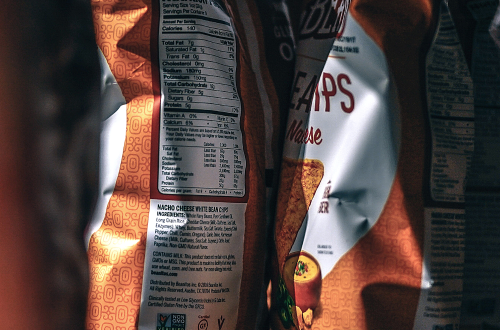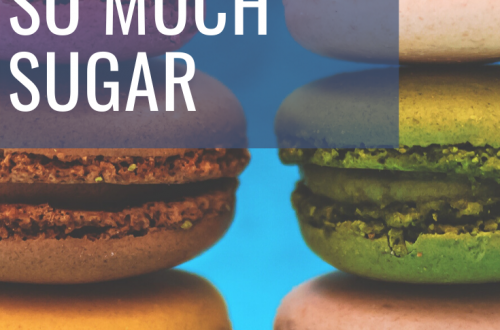
Are Free Days Good For You?
They Can Be – Here’s How
Really, the only downside to healthy eating is not eating part – not eating mass quantities of just anything we want. Most of us would love to stuff our faces with ice cream and pizza every day … but then we’d be sick. What to do? Typical diets, especially fad-ish ones, require the elimination of your favorite treats (chocolate ice cream, I’m looking at you) or even entire food groups (I can’t live without dairy!!).
Unless you’re allergic or have an intolerance to a food, there is no scientific reason to ban it from your life forever.
Today I’d like to share with you why I absolutely believe that one “Free Day”, otherwise known as “Cheat Day” per week will make you healthier and happier.
First, semantics.
I’m a bit of a stickler for vocabulary, and I cringe at the use of the word “cheat”, as in “Cheat Day”. G’head, Google it – most sources of diet information label what I’m describing as a “cheat”. To me, this is a complete misnomer! If we were trying to hide our eating to the detriment of ourselves and others, then it would be “cheating”. We are not “breaking rules” here, we are purposefully choosing to eat foods that we may not eat other days, that’s it.
Say it with me: Free Days are not “cheat” days, because we are not cheating ourselves or any diet. We are choosing to enjoy foods we usually avoid during a particular time.
What is a Free Day?
- On a single, pre-selected day every week, you allow yourself to consume any foods you want over an entire day. My Free Day, every week, is Saturday. Not Sunday, not willy-nilly choose based on a party – it’s Saturday and Saturday only.
- On this day, I/you might, for example:
- Eat things I’d usually avoid for health reasons, like chocolate ice cream and pizza. Those are mine.
- Choose to eat at different situations and times of day – like late at night in front of the TV.
You may be thinking, “Hold up, this whole site is about making ‘diligent’ food and exercise choices, developing healthy habits, blah, blah, blah. Now you’re saying to throw it all out the window and eat like a pig once per week? What gives?!”
Um, yeah. Allow me to explain …
I believe there are three big reasons that having a Free Day is crucial to maintaining a healthy diet. One Free Day per week will:
1. Keep Cravings Away
This strategy is tied to the psychology of healthy eating goals. The theory is that by occasionally allowing yourself to indulge in foods not normally “allowed”, you’ll have the motivation to stick to your eating plan most of the time.
Free days can actually prevent you from overeating, as having a one-day indulgence gives you greater incentive and self-control to stay on track as you now have something to look forward to. [Livestrong] This has absolutely been my experience!
2. Boost/Maintain Metabolism
A recent study found that when men took breaks from following a strict diet, they lost more weight and kept it off longer than a similar group of men who never took breaks from a strict diet. [Byrne]
Calorie restriction for long periods of time causes the hormone leptin to decrease in our bodies. We want our leptin levels to be high because it helps us regulate our eating (ie, stop when we’re full). Having a Free Day every once in a while stimulates leptin production (your body is re-assured that it’s not in a famine state), which helps our brains recognize when we can stop eating. Yay! [Dirlewanger] [Jequier]
3. Bring the Fun
I know when I’m trying to reach a diet or fitness goal, the repetition of eating similar foods, thinking of eating as “fueling”, and working out super hard can start to feel, well, like work. And, if you’ve seen “The Shining”, we all know what “all work and no play” can do to a person.
A Free Day gives me a chance to embrace the joy of eating. Whether it’s at a friend’s birthday party, a fancy schmancy dinner with the husband, or just me at my favorite coffee shop – I love to say “yes” to a piece of cake, try new foods, or savor the warm chocolatey goodness of a mocha. Eating wonderful food is just fun.
The takeaway: Indulgences absolutely have their place, even in a super-healthy lifestyle! In fact, giving yourself the freedom to eat whatever you want – on occasion – will help you stick to your eating goals most of the time.
A few caveats:
- Weight management, body composition, and the psychology of eating are complex and multi-faceted processes. Not everyone will respond the same way to the same strategies — the best plans are the ones that you can follow on a regular basis. If you go totally berserk and consume 10,000 calories on your Free Day … maybe you shouldn’t have a Free Day. Perhaps a Free Meal would work better.
- If you have a diet-sensitive health condition (eg, diabetes, high cholesterol, or high blood pressure) plan your Free Day carefully, as small variations in your diet can have larger health effects.
- Keto dieters, you will want to put some thought into your Free Day, maybe call it a Carb Re-feed Day (not as fun, eh? Well, it’s keto … ). Carb Re-feed, or Carb Cycling is a way to enjoy the benefits of keto without wrecking the parts of your body that need some carbs to work. Be warned, though, not all health professionals or dietitians think this is a good idea for Keto-ers.
I’ve shared the three reasons I absolutely believe Free Days are good for you – Reduce Cravings, Boost Metabolism, and Have Fun. Are there any others that come to mind for you?
Have you tried having a Free Day or Free Meal? How has it worked for you?
I’d love to hear from you, so please comment with your own experiences and thoughts!
Works Cited
Byrne, N M, et al. “Intermittent Energy Restriction Improves Weight Loss Efficiency in Obese Men: the MATADOR Study.” Nature News, Nature Publishing Group, 17 Aug. 2017, www.nature.com/articles/ijo2017206.
Dirlewanger, M, et al. “Effects of Short-Term Carbohydrate or Fat Overfeeding on Energy Expenditure and Plasma Leptin Concentrations in Healthy Female Subjects.” Nature News, Nature Publishing Group, 17 Nov. 2000, www.nature.com/articles/0801395.
“Do Cheat Days Work for a Diet?” LIVESTRONG.COM, Leaf Group, www.livestrong.com/article/282152-do-cheat-days-work-for-a-diet/.
Hill, Ansley. “Should You Have Cheat Meals or Cheat Days?” Healthline, Healthline Media, 13 Sept. 2018, www.healthline.com/nutrition/cheat-meals#effectiveness.
Jéquier, Eric. “Leptin Signaling, Adiposity, and Energy Balance.” Annals of the New York Academy of Sciences, vol. 967, no. 1, 2006, pp. 379–388., doi:10.1111/j.1749-6632.2002.tb04293.x.
Matthews, Melissa. “Everyone’s Talking About Keto Cycling. Is It Even Healthy?” Men’s Health, Men’s Health, 26 Apr. 2019, www.menshealth.com/nutrition/a25399400/keto-cycling/.
“Pitfalls of the Keto Diet and Why Carb Cycling Is Better.” Bulletproof, 21 Aug. 2019, www.bulletproof.com/diet/keto/carb-cycling-diet/.





